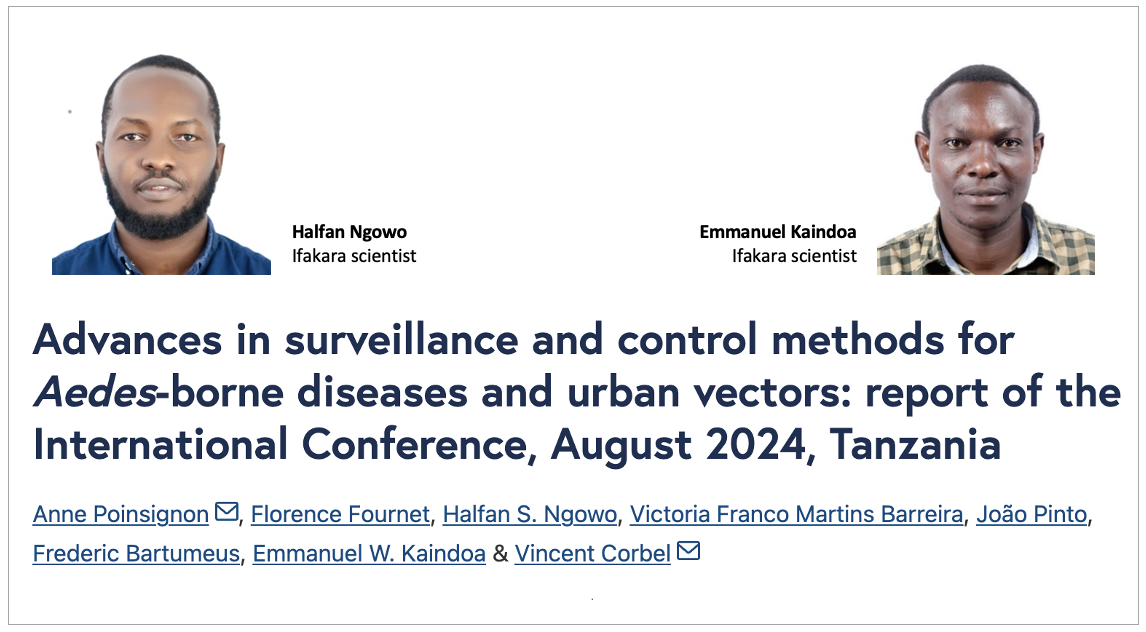
MOSQUITOES: Report on how Tanzania's Summit sparked hope against rising diseases

Imagine gathering over 200 scientists, health experts, and innovators from around the world in the bustling city of Dar es Salaam, Tanzania, all focused on one urgent mission: outsmarting the mosquitoes that spread devastating diseases like dengue, Zika, and chikungunya.
That's exactly what happened at the International Conference on Advances in Surveillance and Control Methods for Aedes-Borne Diseases and Urban Vectors, held from August 26 to 28, 2024. This conference report, published in June 2025 in BMC Parasites & Vectors, underscores the human cost: families disrupted, lives lost, and health systems strained.
The Summit wasn't just talks and slides—it was a hub for sharing breakthroughs, reviewing cutting-edge tools for tracking and controlling these pesky vectors, and building partnerships across borders and sectors to bolster public health.
With live streaming reaching 321 more virtual attendees, the conference wrapped up with a clear call to action: innovate faster, collaborate deeper, and roll out affordable, community-driven strategies to curb these diseases before they spiral into epidemics. It's like a roadmap drawn from real-world expertise, emphasizing scalable tech and teamwork to protect vulnerable communities.
Why this fight matters more than ever
In a world where climate change is redrawing maps, mosquitoes aren't staying put. Diseases once confined to certain regions are now popping up in new places, especially across Africa, where urban growth creates perfect breeding grounds for Aedes mosquitoes—the tiny culprits behind outbreaks that can overwhelm hospitals and economies.
Think about the recent surge in dengue cases globally; it's a stark reminder that our old tools, like insecticides and basic traps, aren't cutting it anymore.
But here's the hopeful twist—by pushing for community-based solutions that everyday people can adopt, we could turn the tide, improve well-being and prevent the next big outbreak. It's not just science; it's about safeguarding our shared future in an increasingly connected, warming world.
Diving Deeper: The challenges and innovations
To understand the full story, let's step back to the basics. Vector-borne diseases, carried by mosquitoes like Aedes species and the invasive Anopheles stephensi, have been making a comeback with a vengeance.
Environmental shifts—hotter temperatures, more rainfall, and rapid urbanization—have expanded their turf, allowing these insects to invade new territories and thrive. Prevention boils down to controlling mosquito populations, but as the report notes, current methods fall short, especially in stopping widespread epidemics.
The conference delved into fresh approaches, from high-tech surveillance gadgets that track mosquito movements in real-time to eco-friendly control methods that involve local communities in the fight. It's all about making tools affordable and scalable, so even resource-limited areas can join in.
For instance:
- Surveillance Upgrades: New apps and sensors to spot breeding sites early, preventing outbreaks before they start.
- Control Innovations: Community-led programs using traps, biological agents, and education to reduce mosquito numbers without heavy chemicals.
- Collaborative Edge: Linking health, environment, and tech sectors for holistic strategies that last.
This isn't pie-in-the-sky thinking; it's grounded in the conference's review of emerging technologies, aiming to inspire action across Africa and beyond.
Collaborative minds behind it
No breakthrough happens in isolation, and this report is a shining example of global teamwork. The report’s first author was Anne Poinsignon from the University of Montpellier in France, with supervision from Emmanuel Kaindoa of Tanzania's Ifakara Health Institute and Vincent Corbel, also from Montpellier.
A special nod goes to Halfan Ngowo, a dedicated researcher from the Ifakara Health Institute, whose contributions brought vital local insights from Tanzania—ground zero for many of these challenges.
But the magic came from the diverse crew: Florence Fournet, Victoria Franco Martins Barreira, João Pinto, and Frederic Bartumeus, hailing from institutions like Universidade Nova de Lisboa in Portugal, the Spanish National Research Council and Institució Catalana de Recerca i Estudis Avançats in Spain, and Brazil's Instituto Oswaldo Cruz.
>> Read full publication, here.
